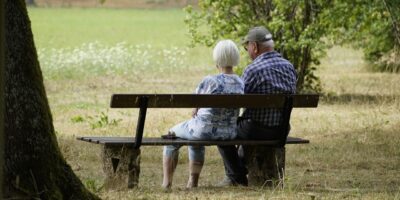This month, Suzanne Mumford suggests how you can structure and adapt activity sessions to support residents with advanced or severe dementia.
I am often asked what activities we can do to support people who are less able to engage and communicate as a result of their advancing dementia. There are a number of things to remember – but the first and most important is: Slow Down. While everyone with dementia is unique, it is important to remember that, essentially, brain cells are dying, so it takes longer to process information.
After that, it’s crucially about creating a warm, welcoming atmosphere, knowing a little bit about the person and giving them time to respond to the gently stimulating work you are doing.
- Give the person time to get used to you being with them before you touch them. Make sure to always firstly say who you are – the rhythm and tone of your voice as you greet them by name will help them to adjust to your presence.
- Check the care plan to see if the person has a sensory deficit such as macular degeneration or cataracts, or a hearing deficit. Think about how you may need to adapt your approach to accommodate these needs.
- Keep the person warm, and always encourage a drink and something to eat (checking the care plan first for any special swallowing needs).
- Try not to overload the person with too many sources of stimulation at the same time.
- Know a few things about the person that you can adapt for an activity. Perhaps they liked animals, baking, gardening, sewing or knitting. We know that most people with dementia respond to music and the rhythm of poetry – having a personalised playlist on an MP3 player, headphones or CD can be very beneficial. Read a favourite poem out loud, try to concentrate on the rhythm of the poem – and, again, don’t rush.
- Simplify activities with a focus on sensory stimulation, and don’t worry if you don’t get an immediate response (or any response).
- Keep going, be gentle and always thank the person for the time they have shared with you before you leave them.

Suzanne Mumford is working with us on our Best Practice Training Course for activity co-ordinators. She has over 25 years experience working as a dementia and activities specialist for several leading UK care home groups, is a qualified trainer and is currently Specialist Advisor (Nursing) on CQC care home inspection teams.
Find out more about The Daily Sparkle Training courses here.




